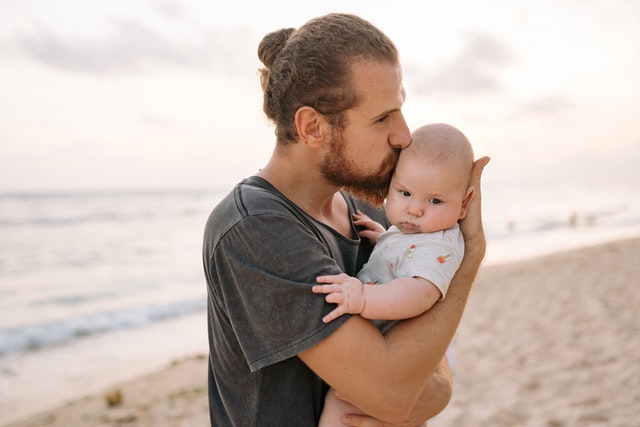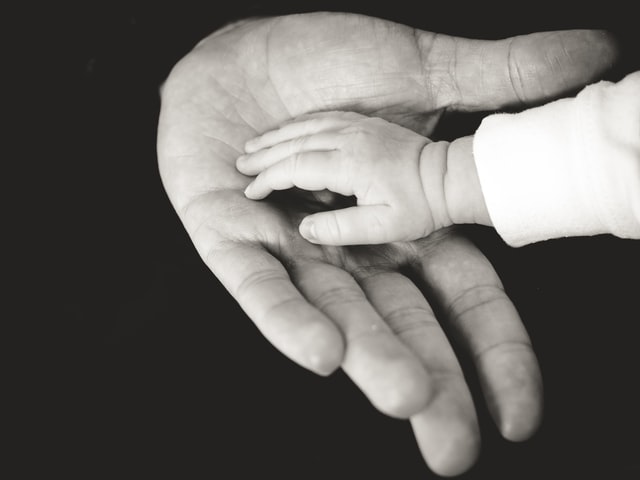What is a good parent-child relationship? Why is it important to build a good relationship, what kind of damage and difficulties can a deteriorating relationship cause?
The parent-child relationship affects your whole life, and the foundation for it begins in infancy.
This relationship is a deep attachment that greatly affects your personal development.
- What does a parent need to pay attention to in order to develop a healthy relationship between themselves and their child?
- Why is it important to be separated from your parents on a physical and emotional level as well?
In this article, we look for answers to these and similar questions.
How important is a good parent-child relationship in childhood and adulthood?
A good parent-child relationship is of great importance as it has consequences for a child’s development. In addition to meeting physical needs, the parent is also responsible for mental, emotional, and social development.
Childhood parent-child relationship
The influence of the family is the strongest of the educational influences, hence the earliest experiences, which are very decisive.
The family also serves as a filter for a child. In good cases, positive, developmental factors from the outside world are supported by family patterns.
In a good relationship, the parent is able to recognize the needs of their child. In a good environment, the child can develop a healthy self-image of himself.
A supportive environment teaches a child that he or she is worthy of love, and it follows that he or she sees the world as positive and supportive.
If the family-formed filter allows parents to have negative effects, they can delay their child’s development. For the most part, the parent selects the effects on their child.
It doesn’t matter if you watch violent movies in the company of your child, or just go on a nature trip with them, or maybe garden together.
There is also a physical, mental, and emotional connection between the parent and the child.
Man is a social being, his development is determined by the environment around him. Everyone faces challenges in life, and it is much easier to overcome them if our human relationships are high quality.
The family-shaping force, the mother-child relationship is especially important.
In infancy, we instinctively demand closeness, which is one of the keys to our survival.

Adult parent-child relationship
In adulthood, the relationship with parents is different. A healthy adult personality includes independence, and separation from parents.
There are two sides to separation from parents: physical and emotional separation.
Physical detachment means financial independence and moving away from home.
Emotional detachment is not tangible, it often doesn’t happen these days.
Why? Because its importance is not taught, even though its lack makes the adult parent-child relationship pregnant.
When emotional detachment does not occur, there are also signs of it:
- parents share unsolicited advice in adulthood;
- have a say in how their adult children live their lives;
- the adult child does not assume himself towards the parents, he is afraid to say no;
- parents affect the child emotionally, no boundaries are drawn.
Emotional detachment is also very important because lack of it causes a mental break, keeps you addicted, you can’t really be complete and be yourself.
What might be the consequences of a deteriorating parent-child relationship? How can this be avoided?
There can be a number of reasons for a deteriorating parent-child relationship: a bad atmosphere, unpredictability, parental personality disorders, whether verbal or physical abuse.
The parent may also have grown up in an abusive relationship and passed these patterns on to their child.
In very many cases, the parent is unaware that he or she is a toxic parent. You may say or think she will do anything for her child, yet cause severe emotional and mental harm to her.
A toxic parent does not provide emotional security for their child. There may be constant criticism from the parent, believing it will help their child. In fact, she nurtures a very deep, critical inner voice in her child who can punish harshly for her wrongdoings as an adult.
Otherwise, the parent will not listen to the child’s mental pain, with the result that the child will suppress his or her emotions as an adult.
They may not care about the child’s goals, they don’t take into account their real needs.
It is possible that the child will be held responsible for their own failure, but these are unrealistic expectations, as everyone is the blacksmith of their own destiny.
These faulty parenting strategies can have a number of serious consequences for the child.
Various behavioral disorders can develop, of which there are many forms.
For example, a child will not be able to handle failures, will have a faulty self-image, or will not be able to process and live out their emotions properly. There can be a constant tension between a parent and a child, and things can range from verbal abuse to even act.
Recovery from a toxic parent-child relationship is difficult, and the child may need to rebuild themselves into adulthood.
How can this be improved?
The starting point is for the parent to be aware of themselves, to know their own positive and less beneficial qualities. Self-knowledge is important in all human relationships.
The parent should look into the upbringing they may have been raised in a toxic parent-child relationship.
In this case, you will inadvertently pass this pattern on to your child. In this case, the parent should not be discouraged, it is a hard thing to face their own mistakes, but everything can be changed.
If necessary, consult a specialist, such as a psychologist.
This is not a shame, but an opportunity to treat the traumas experienced in childhood. It takes perseverance, but a parent can put their own inner world and relationship with their child in order if they go to therapy.
Get to know your child! The answer may come: I already know him. This is usually not the case, especially if one does not even know oneself.
Life is a continuous experience in which we show our thousands and thousands of faces to the world and to ourselves. It is no different in relation to our child, he is also able to show us something new.
It follows that openness is very important.
It is good to be aware of your child’s needs and personality characteristics. Life also shows that even though two brothers grow up in the same family, they still have different personality traits.
It is important to strive to create a secure background not only on a physical but also on an emotional level. Have constant communication, and always discuss any problems that arise.
Let your child relax, and have their own space. In today’s rushed world, there is a great need to recharge if you require it to leave you alone.
Everyone needs time spent completely alone because that is when we can balance the possible ups and downs of our spiritual world.
Criteria for a good parent-child relationship
1. Parent-child relationship without masks
Everyone needs love and acceptance!
A parent and child may see the world differently on certain issues, and this is fully accepted. Man gives himself a real self, in this case, no masks are needed.
One of the most important things for a person is to be themselves.
2. Trust first and foremost
We build trust as a parent from an early age. In this state, the child feels and knows that they are being given a stable background. The parent is there for her and you can count on her in any situation.
Trust occurs on both an emotional and logical level.
It develops on an emotional level due to family ties, on a logical level, it is derived from actions.
3. Honesty on both sides
The parent should be honest as he conveys the example. If the parent is not honest, how can you expect honesty from your child.
The child understands if something is wrong. It is not worth teaching him that it is not necessary to tell everything. It’s important to tell her if anything hurts her.
When you see the suppression of emotions in front of you as an example, you may not dare to take on your adulthood and manage your emotions in place.
Honesty is a great virtue, watch your inner world, in which case you will somehow feel lighter. It does not push your soul load, you are liberated.
Encourage your child to be honest, in the long run, it always pays to openly assume yourself.
4. Time spent together, quality time
Quality time is when they paid maximum attention to each other. You are present, in which case you are just concentrating on each other.
It could be a common game that is always a great experience. Even a joint vacation where you can relax together.
Real attention is when you feel that the other cares about you. The feeling of love also comes from this attention to each other.
5. Joint activities, hobbies
Luckily, they had the same habitus and interests. This is quite common as the parent gives the sample to their child. If not, you may want to look for common ground.
The time you spend together and the activities you get to know together can get to know each other from different perspectives. The point is for everyone to enjoy spending time together, not out of coercion, but on a voluntary basis.

6. Establish rules
The rules help you find your way around, it’s good to know what to stick to. The same is true in other areas of life.
On the part of the parent, it is important that he does not want to enforce his own expectations, ideas, and image of the world on his child.
There are rules about a good parent-child relationship that also serve the interests of the child and the parent. There is no over-regulation, and as a result, everyone can live for themselves.
7. Consistent education
Consistency is also about adhering to established rules, but it is not about rigor.
Only a parent who is with himself or herself can be consistent with his or her child. The child copies the pattern of the parent, he cannot be expected to be consistent if the parent is not consistent in life either.
A consistent parent explains the reason for their decisions to their child. It is important that the child understands what the requirements are based on. The discipline of a consistent parent is never selfish and shameful.
Awareness on the part of parents is very important, meaning they know exactly what is expected of their child. It is good to discuss this with each other, as consistency is upset if the mother and father follow the rules differently with their child.
8. Demonstrating emotions
Everyone has emotions, but improper processing and handling of them can cause serious mental problems.
There are some habits entrenched in our society that make our lives very difficult.
One of these is to keep a man from showing emotion. Of course, a man and a woman work differently, and men tend to have a harder time opening up about their feelings.
There is no problem with that, but everyone has emotions that need to be managed if we want to live a balanced life.
Encourage boys to talk about their feelings and what is hurting them. A word or a sentence can help a lot in solving mental problems.
In this case, the real care of the child is revealed to the parents as well, so they already know how to support him or her effectively.
9. Managing emotions
The conscious parent is aware that dealing with emotions is a very important thing to thrive. He may not have been taught this, but his life experience proves it.
A conscious parent draws their child’s attention to address their feelings.
- As a first step, notice what can jerk him out of rest.
- Then feel free to tell us what hurts her because your parent can help her.
Parents can help effectively if they know their child’s real concerns. When emotions are properly processed, it helps to create a balanced parent-child relationship.
The child will continue to benefit from this knowledge, as the management of emotions is of great importance in all human connections.
10. Non-judgmental parent-child relationship
The conscious parent is aware that we all have an independent personality and respects that. A child may see the world completely differently than his or her parents.
A judging parent can injure their child, so let’s not classify our child’s personality as just his or her actions.
11. Praise and recognition of each other
This is a very important thing, but it is not given much importance in today’s society.
There are expectations in most workplaces, yet there is no recognition after the work is done. A mistake, on the other hand, comes with an immediate warning or scolding.
Existence of praise and recognition is a prerequisite for developing a child’s healthy self-confidence.
There are not only expectations in a balanced parent-child relationship, but also praise. Of course, the golden mean is important, but without praise, proper self-esteem will not develop.
12. Respect for each other’s living space
There are times when a person wants to be completely alone, that’s a natural thing to do. From time to time, a child also demands silence and solitude.
In a good parent-child relationship, the parent does not keep hanging on to their child and does not force their own ideas on it. A conscious parent gives freedom to his or her child because he or she is aware that he or she will return to it sooner or later.

13. Awareness
The importance of awareness is conveyed by the parent to the child. The conscious parent understands the behavior of himself and his child as well. It saves a family life from a lot of conflict.
If one is conscious, one is aware of one’s own abilities, assumes one’s positive and negative qualities, can manage one’s emotions, and strives for self-improvement.
When a child sees a constructive pattern, his or her adult life becomes much easier. You will be aware of your abilities, and dare to use them, making it easier to take on obstacles in life.
14. Openness
It can be learned from anyone, even a child. The conscious parent is aware of this and turns open to his child.
Maybe the child thinks about the world completely differently than his or her parents. If the attitude is open from the parents, it will save a lot of conflict in a parent-child relationship.


